LONDON PEST CONTROL AVAILABLE 24/7
LONDON PEST CONTROL AVAILABLE 24/7
Are you looking for wasp control services in London?
From commercial and domestic properties to backyards, balconies, gardens and more – Dyno-Pest has the best wasp control solutions. We are an experienced team of pest controllers committed to ensuring every property remains free from wasps and other unwanted pests all year round. Our skilled technicians are on call 24/7 to provide swift, effective treatments that guarantee a long-term solution.
With our non-toxic treatments, we’ll get rid of any infestation quickly and efficiently while protecting your health and those around you. The results last up to 12 months, so you can rest assured knowing there won’t be any further pest problems anytime soon!
Contact our office today and book an appointment with one of our highly trained specialists! A hassle-free experience awaits!
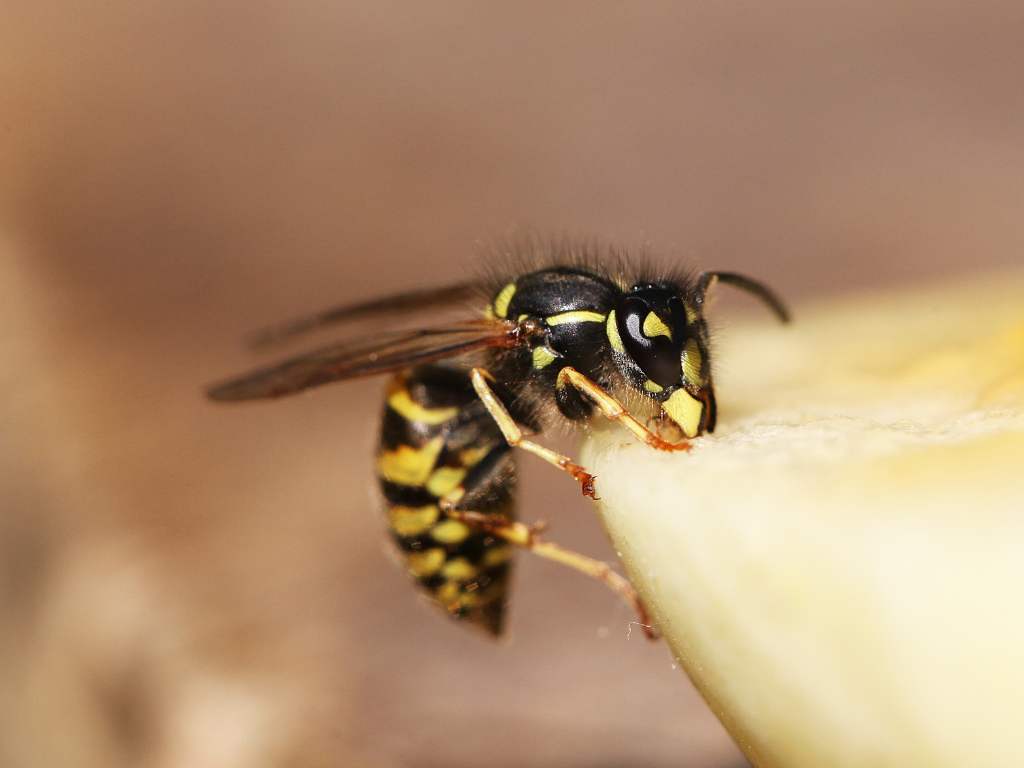
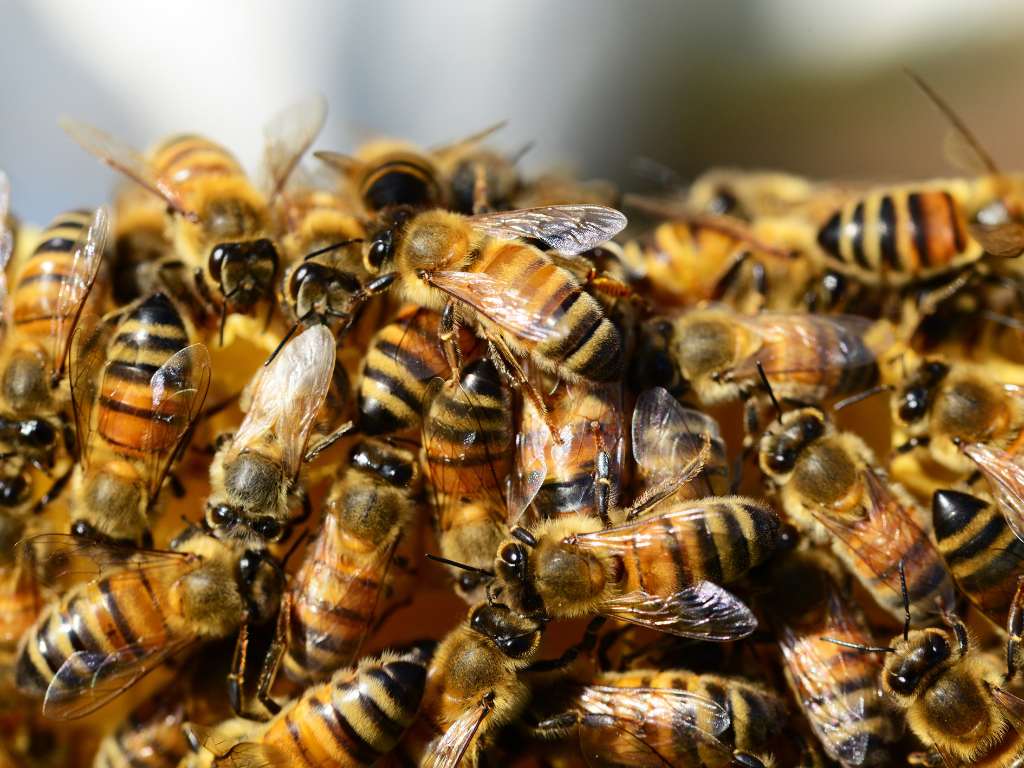
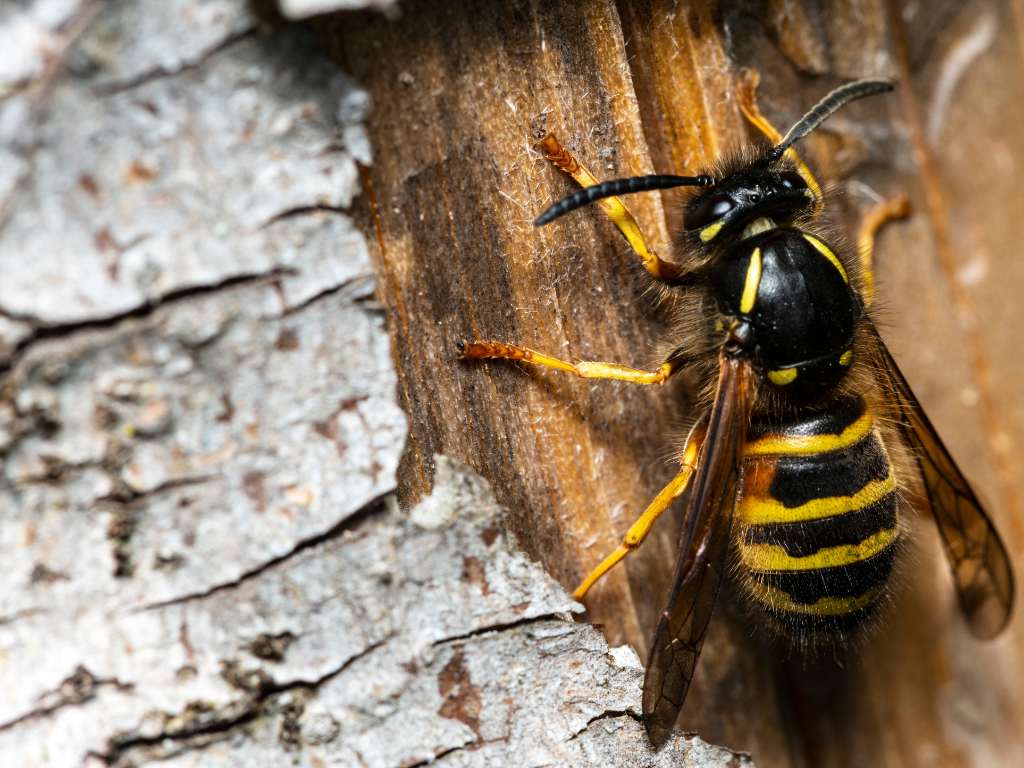
01
Fill out our free quote using our online quote builder
02
Once confirmed, we will arrange a time to visit you
03
Finally, we will remove the pest for you, leaving you pest-free!
Wasps present a genuine health and safety problem in areas visited by members of the public, such as shopping centres, parks, and recreational areas.
They are also a real threat to any business that stores, prepares, and serves food. Whilst wasps usually eat insects, they feed on dustbin waste and animal carcasses. For a restaurant owner, they can be an absolute nightmare in turning away potential customers before they have even reached the door.
Wasps are a real nuisance to humans, especially in the late summer. The cooler weather makes them more likely to sting, and unlike a bee, a wasp can sting many times. The sting can be excruciating and, in extreme cases, can even cause an anaphylactic shock.
DIY treatments are rarely effective and possibly hazardous. Call in the professionals. In our experience, a combination of treatments will be needed to effectively deal with your wasp problem, including professional-grade residual insecticides and baiting systems (as well as safely removing and destroying the wasps’ nest). Installing discreet electronic fly killers as part of your ongoing preventative regime may also be necessary.

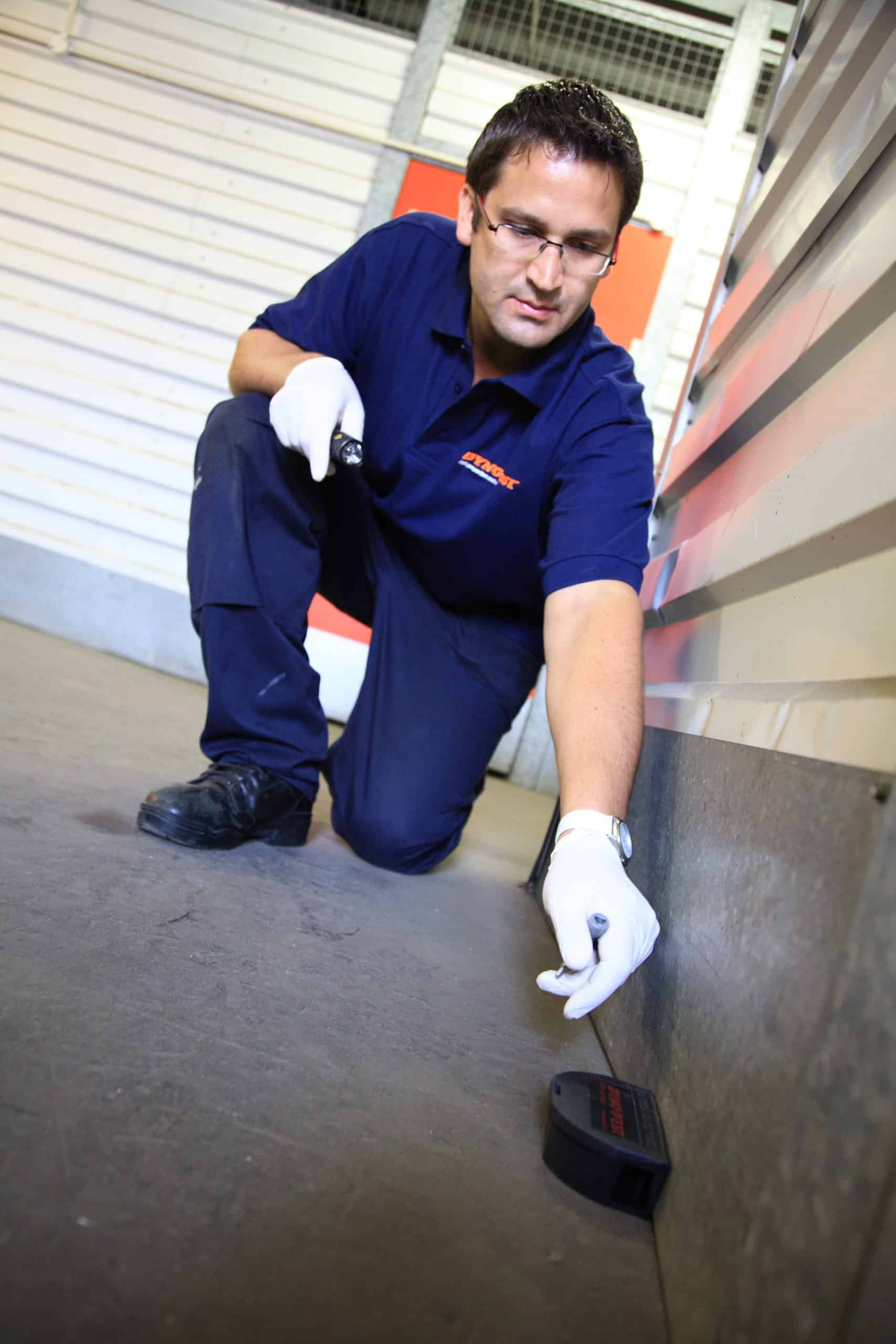
 H SL2024-01-22Had rats in my maisonette due to a hole/leaky pipe in my neighbour's garden (which Mark identified). He was fantastic: not only getting rid of the rats as quickly and efficiently as possible, but giving me advice along the way that has been so helpful. Can't recommend him/them highly enough.
H SL2024-01-22Had rats in my maisonette due to a hole/leaky pipe in my neighbour's garden (which Mark identified). He was fantastic: not only getting rid of the rats as quickly and efficiently as possible, but giving me advice along the way that has been so helpful. Can't recommend him/them highly enough. alison craig2023-08-03Terrific service.Friendly, professional, and efficient.
alison craig2023-08-03Terrific service.Friendly, professional, and efficient. Wendy Pullinger2021-12-20Great professional service. Helpful advice and support. Highly recommend Mark.
Wendy Pullinger2021-12-20Great professional service. Helpful advice and support. Highly recommend Mark. Michelle Parkin2021-12-18I am extremely happy with Mark for his prompt response and professional service he provided me with regards to the mice issue we have. I highly recommend. Thank you
Michelle Parkin2021-12-18I am extremely happy with Mark for his prompt response and professional service he provided me with regards to the mice issue we have. I highly recommend. Thank you Hannah Jeffery2021-12-16I had a problem with pigeons nesting under my solar panels. They were very polite, informative, professional and was happy with the service from start to finish. Prevention measures installed to the solar panels, pigeons evicted and all areas cleaned. I could not be happier with service provided from Mark and Chris @ Dynopest.
Hannah Jeffery2021-12-16I had a problem with pigeons nesting under my solar panels. They were very polite, informative, professional and was happy with the service from start to finish. Prevention measures installed to the solar panels, pigeons evicted and all areas cleaned. I could not be happier with service provided from Mark and Chris @ Dynopest. Sarah Cawdron2021-12-15Great service from Marco the engineer. Always polite and extremely good at his job. Well done.
Sarah Cawdron2021-12-15Great service from Marco the engineer. Always polite and extremely good at his job. Well done.

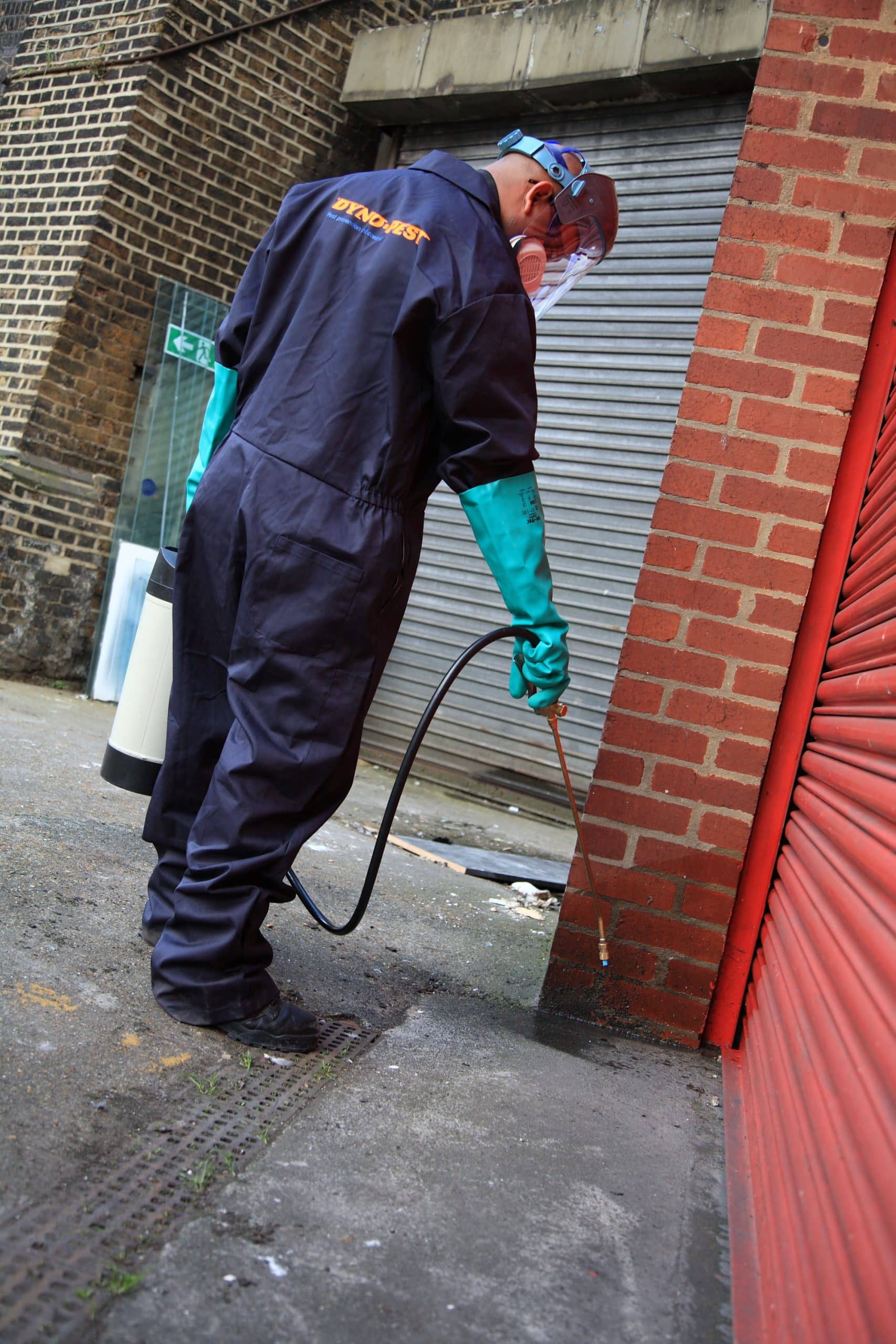
At Dyno-Pest, we understand how crucial it is to maintain a comfortable and safe environment in your home. Our residential wasp removal services stand out for several reasons:
Choose Dyno-Pest for domestic wasp control, and let us help you restore peace and comfort in your home.
At Dyno-Pest, we recognise that a wasp nest poses a significant risk to businesses, particularly those in the food and hospitality sector. Our skilled technicians use professional-grade equipment and substances to locate and safely remove wasp nests, minimising disturbance to your operations. We adhere to strict health and safety guidelines and dispose of the nests responsibly. Our services don’t end with nest removal; we implement preventative measures, such as electronic fly killers and residual insecticides, preventing future wasp invasions and ensuring your business remains wasp-free.
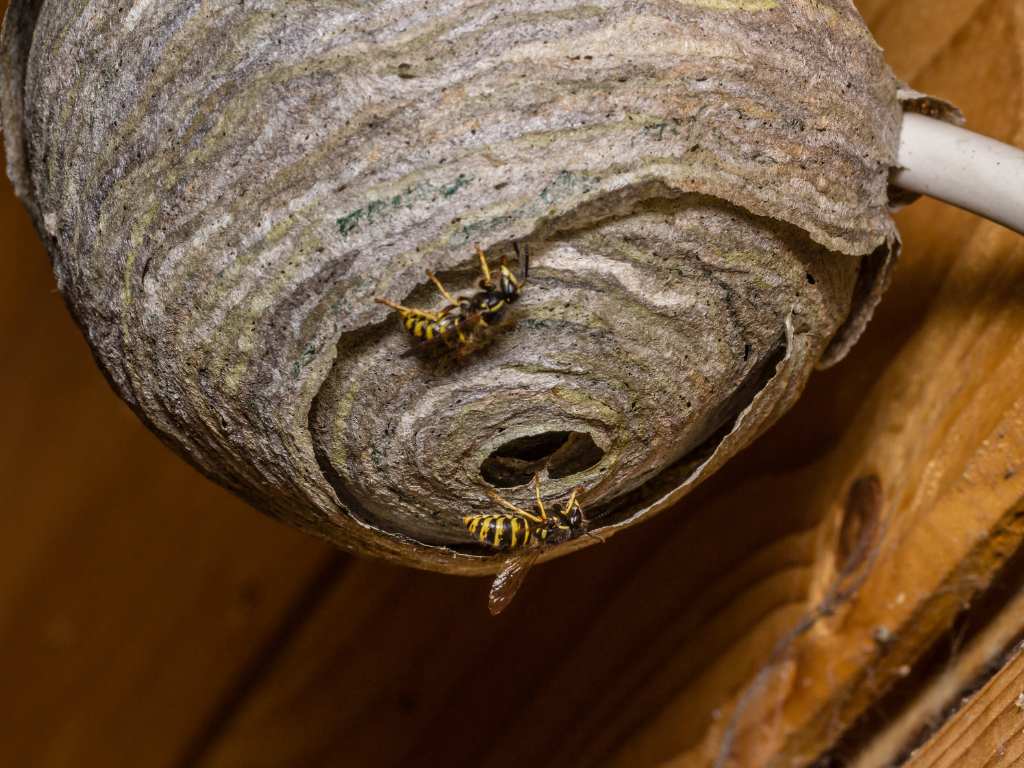
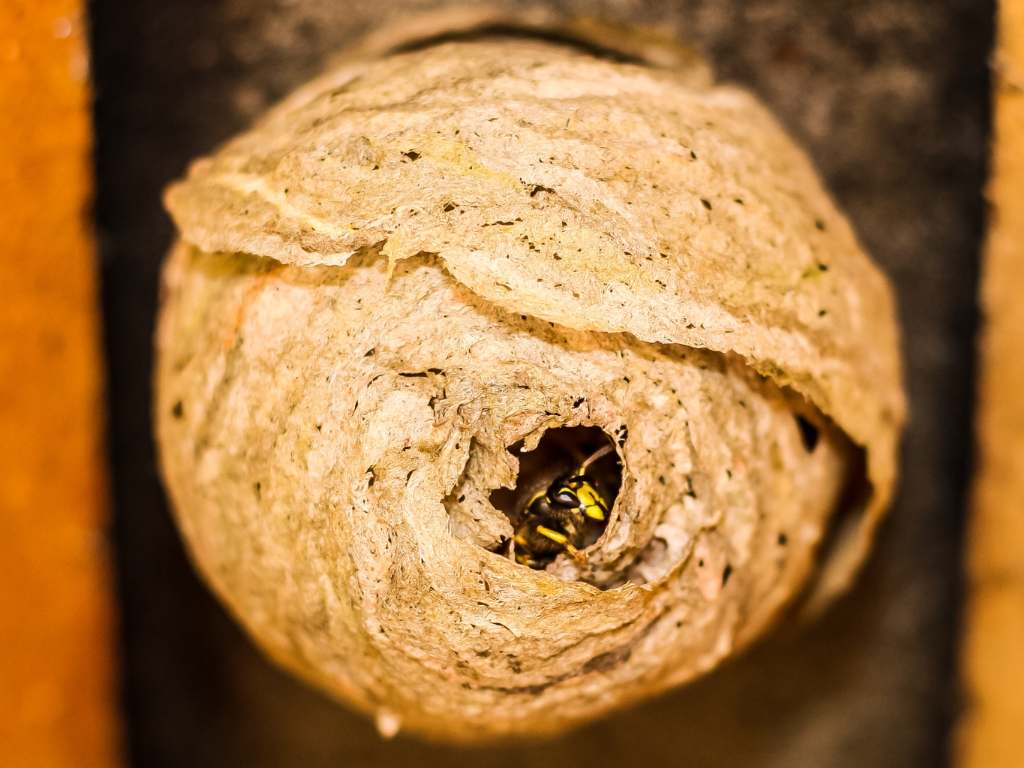
Whilst it is impossible to guarantee that wasps will never infest your premises again, Dyno-Pest’s ‘Power of 3’ protection programme can significantly reduce the risk:
01
Dyno-Pest surveyors will thoroughly assess your premises, identifying risk hotspots that could lead to an infestation. There is no charge for this.
02
Dyno-Pest technicians will recommend a preventative and management treatment regime, including scheduled inspection visits.
03
Dyno-Pest technicians can train your team in how to identify the earliest signs of activity and how they can play their part by adjusting their habits.
Dyno-Pest technicians will deal with your wasp problem quickly and efficiently with all the correct equipment to do so safely.
Because wasps’ nests can often be located in areas that are hard to access, such as loft spaces and under the eaves of houses and due to the aggressive nature of the wasps, they are best dealt with by professionals.
If you try to remove the nest yourself, you could end up stung not just once but hundreds of times. You should contact Dyno Pest for your wasp nest removal in London.
While bees are not actually protected, they are not considered a pest, so you should go to the British Beekeeping Association (BBKA) site if you have a problem with swarming bees.
Many people confuse wasps with bees, particularly honey bees, which have a similar appearance and are around the same size. The Common wasp is the one most usually found in the UK and always has bright yellow and black stripes. The honey bees’ stripes are more subtle – black and dark brown or black and golden brown. Honey bees are usually hairier than wasps, too. Bumblebees are less often confused with wasps as their bodies are rounder and much furrier.
Wasps and bees can also be differentiated by their nests. Wasps build paper nests either underground or in cavities in trees, walls, and buildings, and their nests are usually spherical and range in size from that of an orange to a giant beach ball. Bees build their nests out of wax cells stacked on top of one another. Honeybee nests tend to be larger than those of wasps. Bumblebees nest underground or in compost heaps or piles of leaves and similar.
The thing to remember about wasps is that they’ll only sting if they feel threatened, so it’s best to leave them alone and resist the urge to wave your arms around and shoo them away. This can aggravate them, and if they sting or are killed, they release a pheromone that lets the rest of the nest know it’s under threat, and instead of just one wasp, you could have hundreds of aggressive wasps around. Unlike bees, wasps can sting several times. Different people will react differently to the sting, from almost no effect to severe allergic reactions. Most will suffer pain and swelling to various extents. Stings are best treated with ice packs and antihistamine creams, though those suffering extreme reactions or with stings close to the face and neck should seek urgent medical attention.
Several telltale signs indicate you may have a wasp nest on your property. The first and most obvious sign is seeing more wasps than usual in your home or garden. A wasp nest nearby will increase the frequency of wasp sightings, especially near food sources. Additionally, if you observe wasps entering or exiting a specific area of your property, it could clearly indicate a nest. Other signs include a buzzing or humming noise from walls or roofs, and in severe cases, you may even notice structural damage due to wasps chewing through wood or drywall to expand their nest. If you encounter any of these signs, it’s recommended to seek help from professionals like Dyno-Pest to safely and effectively deal with the wasp nest.
Yes, wasps will eventually leave on their own, but this doesn’t happen until late autumn or early winter. However, leaving a wasp nest alone until wasps abandon it naturally is not advisable for several reasons. First, wasp nests grow larger as the summer progresses, leading to more wasps and increased chances of stings. Second, wasps can cause property damage if their nest is in your home or outbuildings. Finally, when food becomes scarce in autumn, wasps become more aggressive in search of sustenance and are more likely to sting. Therefore, professional intervention is recommended to ensure a wasp nest’s safe and immediate removal.
